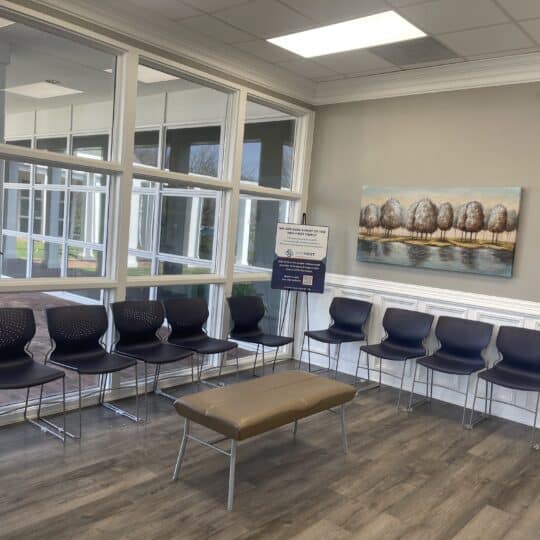What is Primary Care and why is it important?
What is a primary care provider?
A primary care provider (or PCP) is a healthcare professional who helps you manage your health. He or she is the first person you talk to when you have any medical problem that is not an emergency. PCPs can be doctors, nurse practitioners, and physician assistants and practice in internal medicine, family medicine, or even pediatrics. Typically you may think of primary care as your first stop when you are not feeling well or when you need a general physical or lab work but many people don’t think of the relationship that is created over the years with your provider and how beneficial it is to have them know you and be familiar with your health and health history. Having a PCP is not only for people that are “unhealthy”, have several health issues, or are older. Your health and quality of life can be improved just by having a PCP. There are typically four buckets that generally make up the practice of Primary care and it can be classified as “good” according to how well these four features are fulfilled.
Four main hallmarks of primary care services are:
- Being the first point of contact for a medical issue or concern- diagnosing and treating
- Long-term care focused on the person, not a disease- follow your health throughout the years
- Providing care for most health needs- chronic disease, acute illness, and preventative screenings-all under one roof
- Coordinating care when needed- home base for managing specialist referrals or procedures
What can Primary Care do for you?
Evidence does show that primary care helps prevent illness and death, and there have been studies that show the correlation between primary care and health, in the United States on a state level as well as on a county and urban vs nonurban level.
Research shows that having a primary care is associated with positive health outcomes in the short term as well as long term because they cover all types of everyday health concerns and also look at preventing future disease or progression of a disease. Primary care physicians can also catch potential health problems early before they become severe. Studies have shown that people who have a PCP spend less time in the hospital and less money on medical costs in the long run.
According to WHO, “Primary health care (PHC) is the most inclusive, equitable, cost-effective and efficient approach to enhance people’s physical and mental health, as well as social well-being.” PHC also plays a critical role in helping to make our emergency health systems more efficient and resilient to community healthcare crises like pandemics and outbreaks, by helping to detect early signs of an epidemic and therefore enabling earlier actions. One example that is still present in our world and communities is Covid-19. This virus spread quickly, and primary care providers first helped to identify outbreaks and surges in their communities, and then they were on the frontlines of providing the vaccines. They also helped to ease the burden on the hospital systems by caring for their own patients whenever emergency treatment was not necessary.
Studies and Evidence
You may not have known this, but compared with other industrialized nations, the United States has more specialists than primary care providers.
Studies on the States in the early 1990s (Shi 1992, 1994) showed that “U.S. states with higher ratios of primary care physicians to population had better health outcomes, including lower rates of all causes of mortality: mortality from heart disease, cancer, or stroke; infant mortality; low birth weight; and poor self-reported health- in short, the more primary care that was available in a state, showed a population that had an increased life span.” Conversely, there have also been studies that have shown that states that had more specialists than primary care providers, had higher mortality rates. The results of these studies suggest that over 120,000 deaths per year in the United States could be averted by having more primary care physicians. That statistic alone shows the important role that primary care plays in communities and an individual’s quality of life and lifespan.
(Macinko, Starfield, and Shi 2005)
Primary Care & Med First
At Med First, our hybrid model allows us to provide primary care as well as other healthcare services such as urgent care and occupational medicine to our patients, all under one roof. We see and treat patients of all ages, from the youngest to the oldest of the family. At Med First, we believe that establishing a primary care relationship can be pivotal in your quality of life. We are not only focused on providing care for your most immediate needs or concerns, but on getting to know you, and being vigilant in looking for any health threats that may come by way of family history or social risk factors. Our providers partner with you to evaluate your lifestyle and work with you to develop a plan to improve lifestyle behaviors that will make a positive impact on your life and future.
We not only screen for diseases based on acute symptoms and manage chronic illnesses, but we encourage and schedule preventative screenings based on age and frequency medical guidelines. We will not only let you know when it is time for you to have a medical screening, but we will send a referral to the external provider and schedule it for you.
Med First cares about you and your quality of life. We want to partner with you to live a life that you can enjoy with your loved ones, for all the years to come. With all of the health challenges we face from community exposure, yearly cold & flu seasons, travel exposure, and social and family history, it is important not to forget about building or strengthening the foundation for your long-term health. Don’t delay establishing a primary care relationship with a Med First provider and begin working on your health for a higher quality of life, today.
With 23 locations across the Carolinas, you can find a location that is convenient for you. Schedule your appointment by calling, booking online, texting, or even just stopping in to schedule. We look forward to serving you!
Find your location here https://www.thinkmedfirst.com/locations/
Read our mission statement here https://www.thinkmedfirst.com/about-us/
References
https://www.who.int/news-room/fact-sheets/detail/primary-health-care>
https://www.ncbi.nlm.nih.gov/pmc/articles/PMC2690145/ (Macinko, Starfield, and Shi 2005)



